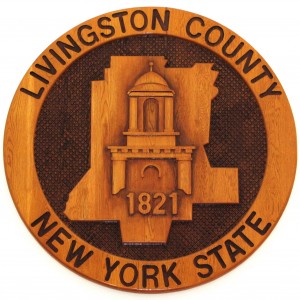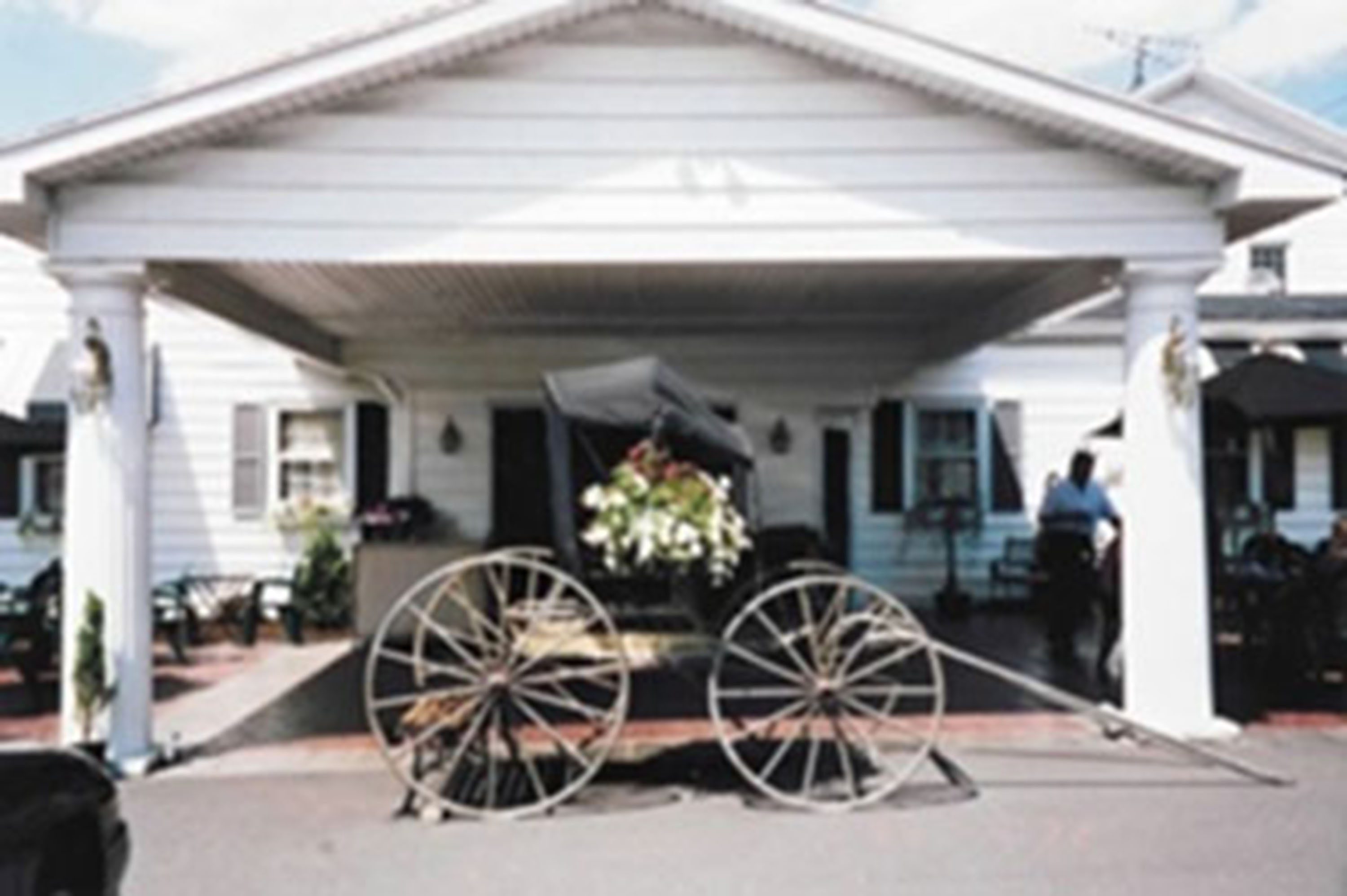May Also Impact Residential Air Conditioning

Deric West, at the podium, speaks at the June 11th press conference highlighting the community safety risks that will be the unintended consequences of new State regulations scheduled to go in effect on January 1, 2025. Pictured from left to right: Amy West, Deric West, State Senator Pam Helming, Honeoye Falls Mayor Rick Milne, and Mendon Supervisor John Moffitt. Sentinel Photo
Imagine losing power in the winter. No problem. Stick the food in a cooler and put the cooler outside. Throw a log or two in the fireplace (or turn on the gas if you have one of those) and light it. Viola! Your food stays cold and you stay warm.
Now imagine losing power in the summer. Sure, you buy ice (lots of it) to keep your food cold, but do you really trust it will stay cold enough? Yeah, you can stand the heat, but what about those with health concerns when the temperatures get too high and the air too humid?
These are just some of the questions racing through the minds of people after hearing New York State Senator Pam Helming speak at a press conference held in the bakery section of the Honeoye Falls Market Place grocery story in that village last Tuesday morning. With her were nearly a dozen independent small business owners from local and nearby rural communities of Newark, Bloomfield, Manchester, Honeoye, Livonia, Scottsville, and East Rochester. Mendon Supervisor John Moffitt and Honeoye Falls Mayor Rick Milne also attended to support all the businesses and residents they represent.
They were there to call on the state to pause the imminent effective date for its new regulations, limiting the use of popular refrigerant coolants. These products, used by both retail and residential, will be banned as of January 1, 2025. These new rules directly result from the State’s controversial Climate Act, which was adopted in 2019.
Implementing these new rules threatens the very existence of groceries and convenience markets, especially independently owned stores in rural communities. In these so-called “food deserts,” these outlets, often major local employers (especially for teenagers) represent the only available food for miles. Closing them hurts the people living there.
Senator Helming said, “They are simply asking for [the new regulations] to be consistent with the federal government standards and implemented in a more realistic timeframe. We should be helping businesses grow, not threatening their viability or the livelihoods of the people they employ and the people they help feed.”
As Helming pointed out, the New York State regulations represent an extreme departure from the already restrictive federal standards. For example, the US Environmental Protection Agency issued a rule in Spring of 2024 allowing 10 refrigerants. The New York State Rules allow only four.
Deric West, owner of Honeoye Falls Market Place in Honeoye Falls and Mendon Meadows Marketplace in the Hamlet of Mendon, said at the event he hosted, “The exorbitant costs, truncated time line, and lack of compliant equipment will be tantamount to unintended consequences which include the proliferation of food deserts in urban and rural areas, destruction of multi-generational businesses, exacerbation of food inflation, limiting choice amongst consumers, and massive employment losses.”
To give you a sense of the impact the new regulations would have on HFMP and other stores, Michael Durant, President and CEO of the Food Industry Alliance of New York State, said in a prepared statement, “From the limited supply of potential alternatives to the more than $1 million in costs per rack system to retrofit existing stores, this proposal will threaten the viability of existing retail food stores and likely lead to more food insecure communities.”
West hoped the State will reconsider and include “independent supermarkets and other stakeholders to be part of the solution process.”
He reminded the State that “Independent grocers answered the call to nourish and care for their communities in March of 2020 and most of us acted nimbly, thoughtfully, and creatively to keep the food supply chain flowing to our neighbors and communities. We achieved that goal with creativity, integrity, nimbleness, and a can-do work ethic in the absence of a rule book or clear guidelines. It was simply our responsibility. Please allow your agency to tap into that community insight and benevolence most Independents possess to create sustainable climate change regulations that protect the environment and bolster food security in rural and urban areas.”






